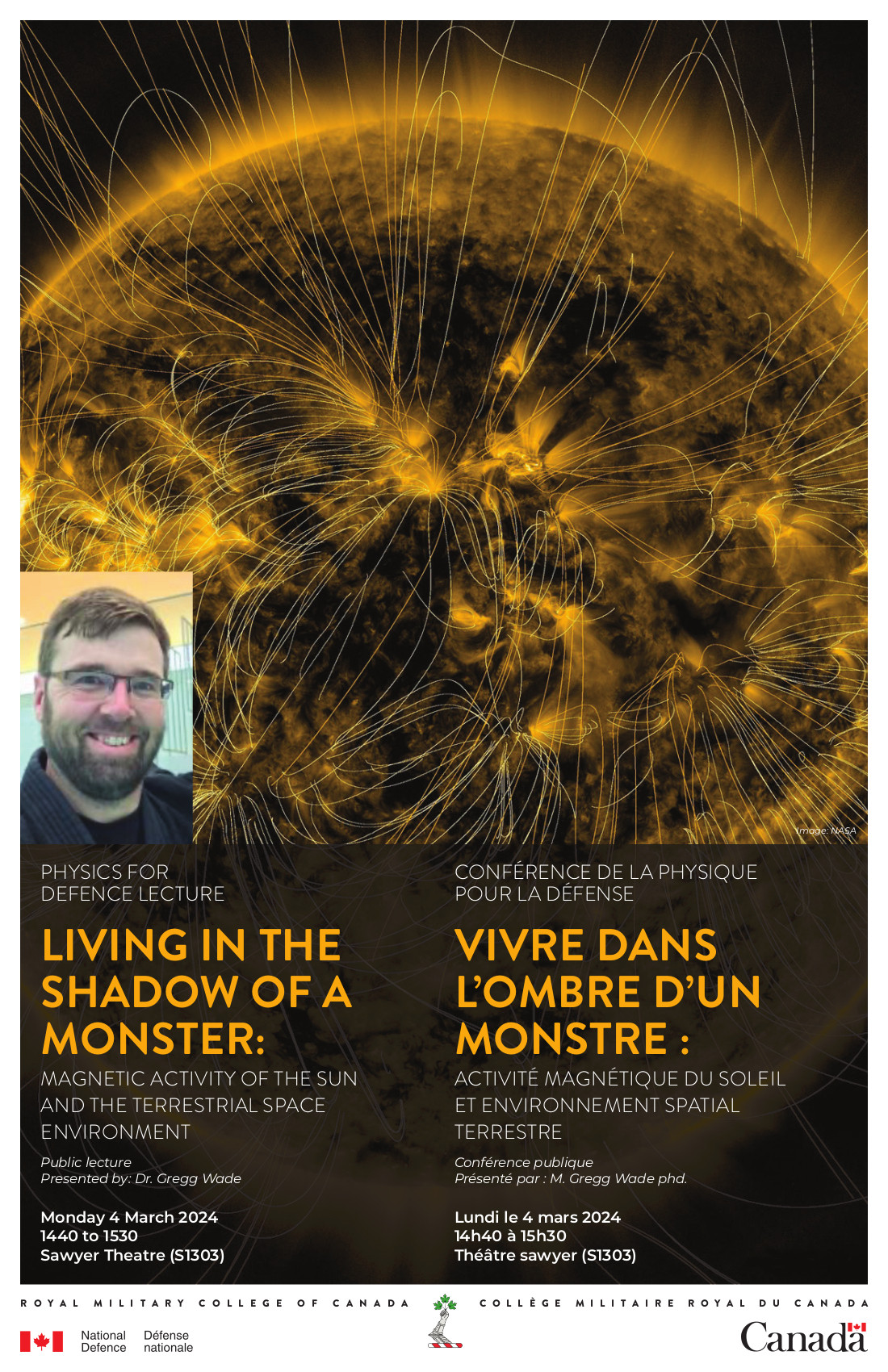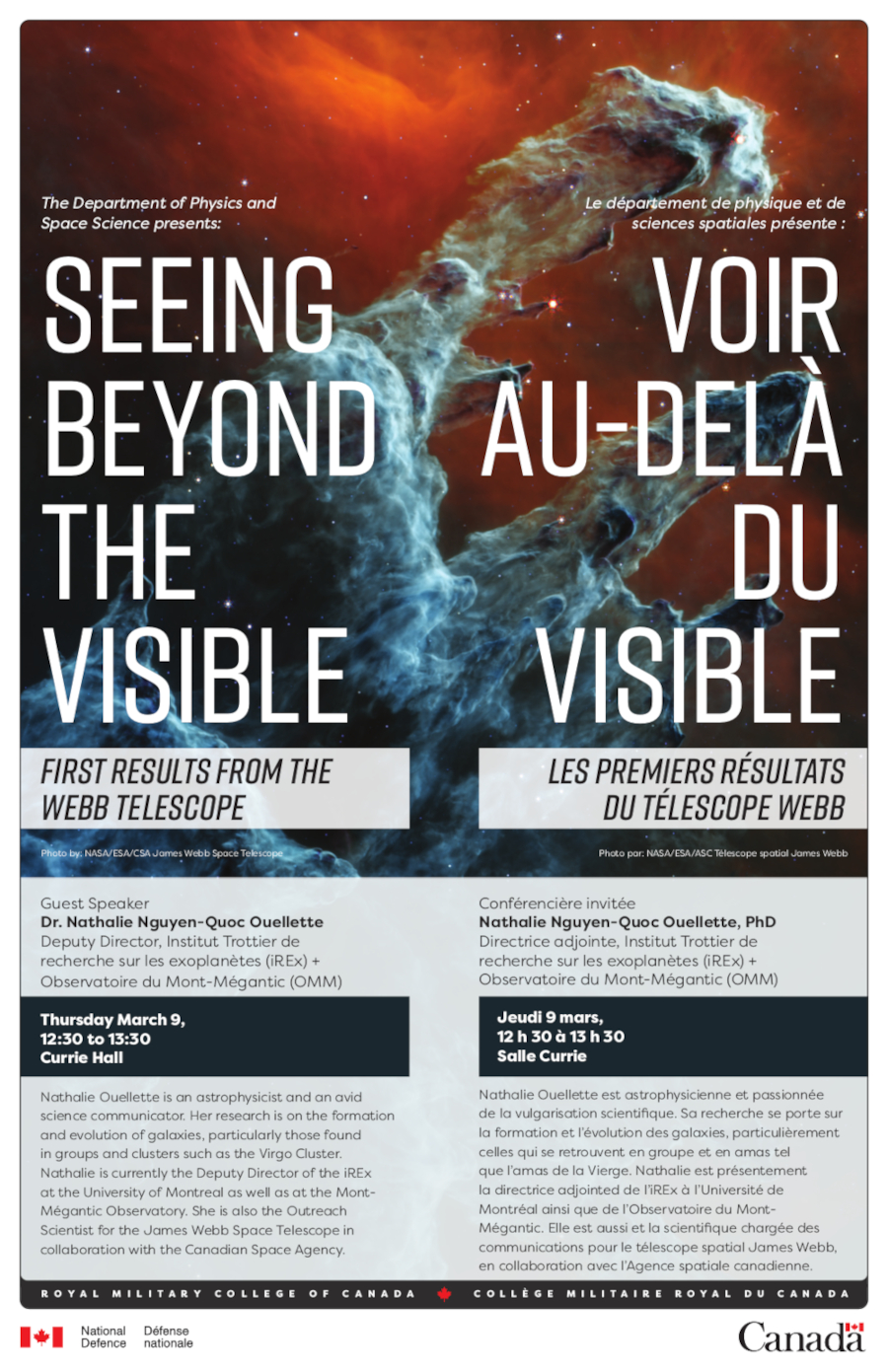Physics and Space Science News and Events
2025 Physics for Defence Lecture
2025-03-21
The Royal Military College's Annual Physics for Defence Lecture 2025 will be presented in
Annual Physics for Defence Lecture 2024
2024-02-26
The Royal Military College's Annual Physics for Defence Lecture 2024 will be presented in Sawyer Theatre (S 1303) by Dr. Gregg Wade on 4 March 2024, 14:40 - 15:30.
Public Lecture: "Living in the shadow of a monster: Magnetic activity of the Sun and the terrestrial space environment".
Contact: LCdr Steve Semenuk steve.semenuk@rmc.ca

The Sun is a convecting, rotating ball of plasma that generates intense magnetic fields deep in its interior. As these fields appear at the solar surface they are stressed and torn by powerful fluid motions, leading to violent reconnection and energy release events. the resultant explosions produce storms of particles and radiation that propagate through the solar system. This presentation will describe the general characteristics of solar activity, and discuss in some detail the impacts of that activity on the Earth’s near space environment. We will also briefly discuss examples of other solar system planets and exotic exoplanetary systems exhibiting star-planet interactions.
Seeing Beyond the Visible - First Results from the James Webb Space Telescope
2023-03-16
Dr. Nathalie Ouelllette, of the University of Montréal, Deputy Director, Institute Trottier de recherche sor les exoplanèts (iREx) and Observatoire Mont-Mégantic, delivered a public talk in historic Currie Hall on 9 March 2023.
The Department of Physics and Space Science presents: "Seeing Beyond the Visible: First Results from the Webb Telescope"
Abstract:
The James Webb Space Telescope (JWST), the successor of the famous Hubble Space Telescope, is finally working and has already blown us away with amazing images taken during its first six months of operations! The Webb Telescope, a 6.5m infrared telescope, is without a doubt one of the most complex machines ever built by humanity and the largest telescope ever sent to space. Thanks to Webb, we now have the capacity to see farther than ever in our Universe, peer through the cosmic dust sprinkled throughout galaxies and discover and study new alien worlds. This project is an international collaboration between NASA, the European Space Agency and the Canadian Space Agency. In addition to contributing the FGS/NIRISS instrument, Canada and its astronomers are already some of the first to use the telescope and have already begun producing groundbreaking science thanks to its revolutionary data. With this overview of what astronomers have already done with Webb data, you will learn about some of Webb's very first exciting discoveries and what this mission means for the future of space astronomy.
Speaker biography:
Nathalie Ouellette is an astrophysicist and an avid science communicator. Her research is on the formation and evolution of galaxies, particularly those found in groups and clusters such as the Virgo Cluster. Nathalie is currently the Deputy Director of the iREx at the University of Montreal as well as at the Mont-Mégantic Observatory. She is also the Outreach Scientist for the James Webb Space Telescope in collaboration with the Canadian Space Agency.
